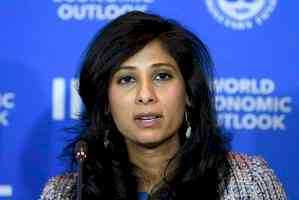Union Budget 2023-2024: COAI seeks reformative tax regime for Telecom Industry
COAI, the apex body that represents the telecom sector, has made recommendations for the Union Budget 2023-24 to the Ministry of Finance, Government of India, towards improving the financial health of the industry.

New Delhi, January 18, 2023: COAI, the apex body that represents the telecom sector, has made recommendations for the Union Budget 2023-24 to the Ministry of Finance, Government of India, towards improving the financial health of the industry.
Key asks made by the telecom industry are:
Regulatory Levies:
COAI has requested that the USO contribution of 5% of AGR may be suspended till the existing USO corpus is exhausted and License Fee be brought down from 3% to 1% at the earliest to cover only administrative costs by the DoT/Government.
The present definition of Gross Revenue (GR) includes revenue from all telecom activities. The term telecom activity is not defined but may include revenue from activities believed to be incidental to telecom activity. It is requested that the definition of GR should make it abundantly clear that the revenue from activities for which no license is required, should not be a part of GR.
Direct Taxes:
COAI has requested to introduce a special regime for the telecom operators under Section 72 of the Income Tax Act, 1961, wherein the business losses can be carried forward and set-off till Sixteen (16) assessment years from the existing 8 years. Lapse of business losses post eight years would be detrimental to the already distressed Telecom Industry as the income during the recovery phase will be subject to tax outflows and other committed pay-outs such as AGR related pay out, spectrum related payout, etc.
During the last few years, the Indian Telecom Industry has witnessed transformational changes including major consolidations amongst most telecom players as a measure of survival in highly competitive market. One of the conditions to avail the carry forward of losses u/s 72A of the Act is for the amalgamated company to hold 3/4th (75%) of book value of fixed assets of the amalgamating company for a period of 5 years, which puts undue restrictions on high technology-driven businesses including Telecom because they are required to regularly upgrade their network infrastructure through investments in newer technology.
In the recommendations, the industry has urged the government to bring down the threshold of keeping 75% book value of fixed assets to 50%, to be held for a maximum period of 2-3 years. The relaxation of this condition would also facilitate an environment supporting the Digital India initiative of the Government.
Regarding TDS under section 195 of the Act on Interconnect Usage Charge (IUC) payments to Foreign Telecom Operators, it is recommended that CBDT issues a circular/instruction mandating no withholding on IUC payments to other operators and clarifying that provision of domestic law cannot be read into or overridden by the provisions of the tax treaties between two countries, unless the treaty is amended by both the countries.
For TDS under section 194H of the Act, the industry has recommended to issue a clarification that trade margins earned by telecom distributors do not fall under the ambit of TDS provision. Considering the low margins earned by the distributors, a lower withholding tax rate of 1% instead of the current 5% may be prescribed for telecom distributors.
Indirect Tax – Customs Duty:
Higher Customs duty on telecom equipment is disrupting the cost effectiveness of the Telcos. Around 85% of the Telecom Equipment in India is imported under Chapter Head 8517.
Basic Customs Duty (BCD) of 20% is levied on import of most of telecom equipment like Optical Transport Equipment's/Networks, IP Radios, MIMO/LTE products, Soft Switches, VoIPs, PTN, MPLS -TP, etc. which is disrupting the cost effectiveness of the Telcos.
The industry body suggested to exempt the levy of BCD charges as it will be beneficial towards importing essential equipment, which will further help in the deployment and smooth roll-out of 5G in India.
Customs Duty - Interpretational issues:
COAI has requested to clearly define the various terminologies being used in tariff/exemption notifications for different equipment, to reduce disputes with the department.
In the absence of clear classification for these, field officers are not allowing import of equipment at respective applicable duty rate and are charging a higher rate of duty, which is resulting in undesired litigation. For example, Optical Transport Equipment, OTN Products, MIMO goods, MP-TPLS Products, Subscriber End Equipment, etc., are not defined in the tariff, creating interpretational issues with the department and resulting in a higher rate of duty @ 20% (in place of 0 to 10% of applicable duty).
CBIC has issued clarification to the field units clarifying that no duty will be applicable on cable laying vessels beyond territorial waters of India. However, payment of duty on vessels and cable, etc. beyond territorial waters and up to EEZ are still being insisted on by the customs units. It has been requested that suitable clarification for activities relating to cable repair/installation operations carried out in Exclusive Economic Zone (EEZ) be issued.
Amnesty for erstwhile Central Taxes viz. Excise and Service Tax: CBIC had notified the amnesty i.e., SVLDRS last in 2019. In the last 3 years, there has been a steep rise in litigation, both under Service Tax and Excise laws, as well as GST laws. It is pertinent that the past matters are settled in a fast-track mode so that taxpayers can focus on matters under the GST law. It is therefore suggested that another Amnesty Scheme be formulated to settle the erstwhile litigations pertaining to Excise and Service Tax.
GST:
For facilitating Ease of Doing Business, a centralized registration process is recommended for the industries having spread in all 36 States/UTs. As an alternate, a centralized jurisdiction may be formed to govern the day-to-day affairs of the taxpayers. COAI has also requested the Government to facilitate Centralized Assessment, Audit Procedure for large taxpayer units with turnover of over INR 500 crore and presence in over 12 States/UTs. This would limit this facility to less than 1% of all Corporates and ensure ease of doing business with no corresponding loss of revenue to the Government.
It has been noted that certain State formations are questioning the claim of ITC on network equipment installed on towers. While there is an ambiguity in the law as to the eligibility of credit on mobile towers and shelters treating them to be immovable, network equipment installed on towers are movable. As such, the provision under which ITC is blocked on immovable property cannot be invoked to deny credit on the network equipment. Considering this, COAI has recommended issuing a clarification so that ITC on network equipment installed on towers is not denied. The sector also requires an appropriately worded law to avoid the ambiguity on availability of ITC on telecom towers, which is resulting in blockage of working capital.
At present, GST is being paid by the operators under Reverse Charge Mechanism (RCM) on supplies by Government, more particularly on Spectrum Acquisition Fees, License Fee (LF) and Spectrum Usage Charges (SUC). Input Tax Credit (ITC) arising out of this is creating huge imbalance with outward liabilities. For the industry, it involves heavy cost of funds for compliance, whereas for the government, this is revenue neutral.
COAI has requested that appropriate Notification be issued exempting the levy of GST on Spectrum Acquisition Charges, LF and SUC. Alternatively, payment of RCM on Government Services from Input Tax Credit (ITC) balance be permitted. This would extend a huge relief to the entire industry.
It is recommended to refund the accumulation of ITC which is over INR 32,000 crore and is posing a huge financial burden on the telecom operators. As an alternative, this amount could be allowed to be adjusted against statutory dues payable or to be used as collateral against loans.
The industry hopes that the COAI recommendations are taken into account by the GST Council.
Lt. Gen. Dr. S.P. Kochhar, Director General, COAI said “Telecom is one of the highly regulated sectors in the country. Given the huge burden of taxes and regulatory levies on telecom operators, and the critical nature of the service to drive Digital India, a special benefit may be provided to telecom operators by way of exemption of GST on regulatory payments of LF, SUC and spectrum assigned under auction. It would provide substantial relief and help in the revival of the industry”.
“Telcos are constantly upgrading infrastructure to keep up with the new- age technologies. However, the required facility to manufacture the equipment has not yet been set up in India. Therefore, telcos are dependent on imports. Considering the financial health of the industry and the huge investments underway to fulfill our goal of a digitally connected India in line with the National Broadband Mission, relaxation in import duties will go a long way in helping us to realize our dream of an ‘Atmanirbhar Bharat,” he further added’.
While COAI has made a number of other submissions to the government, the above recommendations are the most pressing and critically needed by the industry for the purposes of ease of doing business and working towards restoring the financial health of this critical and essential sector.


 City Air News
City Air News 









